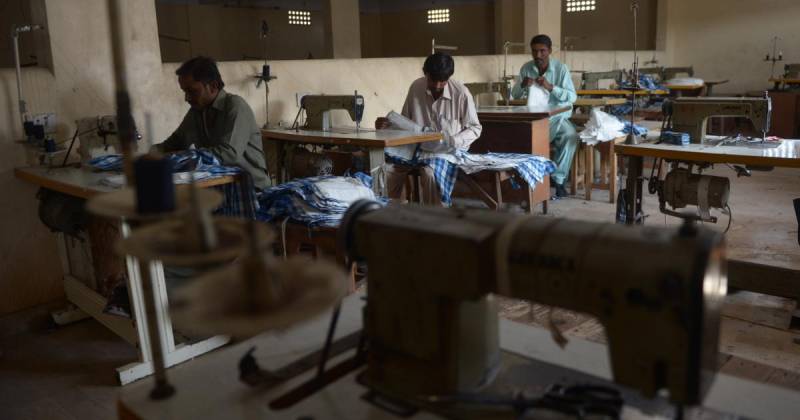In multiple addresses over the past month, especially the latter half, Prime Minister Imran Khan has repeatedly reiterated the impact that a nationwide lockdown would have on the economy. On April 3, he compared the situations in the US and Pakistan, saying that where Washington had announced a $2,000 billion relief package to fight COVID-19, Islamabad could only make $8 billion available – underlining the fiscal disparity.
Decisions to impose lockdowns across the world have been made keeping in mind the impact that it would make on the daily wagers – who, in Pakistan’s case, form a significant proportion of the workforce. In this regard, concerns have been raised by rights groups over the ramifications for the labour in Pakistan and what the government needs to do in order to minimise the economic impact on them.
While the daily wagers are expected to fact the harshest impact, those employed are afraid of what might lie in store as well. According to a report entitled, ‘Sectoral Analysis of the Vulnerable Employed COVID-19 and Pakistan’s Labor Market’, up to 18.5 million people would be laid off owing to the nationwide lockdown. The study has been authored by Pakistan Institute of Development Economics (PIDE) economists Dr Nasir, Naseem Faraz, and Mahmood Khalid.
“These lockdowns would have economic effects which could emerge through several channels, including, but not limited to, sharp declines in domestic demand, decreased tourism and business travel, production linkages, supply disruptions, and health effects,” notes the study.
Meanwhile, labour bodies continue to express concerns with regards to what might happen in the lower echelons of the workforce. National Labour Council (NLC) has asked the government to create a taskforce in order to determine the economic losses that the industries would face so that the workers’ rights could be ensured.
“Daily wage workers will significantly suffer owing to the industries being closed. Many factories in various industrial areas have been shut down because of coronavirus. Coordination between the federal and provincial governments is needed to take on this calamity,” said Habibuddin Junaidi of the Labour Solidarity Committee.
The labour force has also been impacted by numerous exporting countries demanding that local manufacturers shut down production owing to lockdowns in Europe. This has resulted in delaying export shipments since stores and malls across the world have been closed as well.
The Sindh government has especially been lauded by analysts over its actions with regards to tackling the COVID-19 pandemic. The provincial leadership has also been appreciated for its work to safeguard the workforce.
On Monday, Singh announced paid leave for the entire workforce during the lockdown in the province. Orders have also been given to bar any worker from being laid off, or any salaries being deducted during the showdowns. The notifications have been issued under labour laws and Section 3 of the Epidemic Diseases Act (2014).
“Issuance of the notification by the Sindh government is a welcome decision and this decision should be implemented strictly all over the province,” said Karamat Ali, the executive director of the Pakistan Institute of Labour Education and Research (PILER) on behalf of the NLC.
In what many rights groups dub as ‘lessons from history’, women nationwide have further been urged to be included in the workforce. For Pakistan, this has significant financial benefits, given the smaller share of women in the workforce.
According to the McKinsey Global Institute’s report entitled ‘The Power of Parity: Advancing Women’s Equality in the Asia Pacific’ the country can add can over $30 billion to the GDP by working on gender equality.






